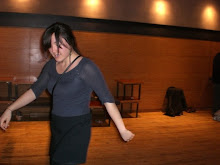
It was in a pile outside
Harvard Bookstore in the Remainders section. Several things go into the purchasing of an unknown title by an unknown author (to me, of course):
1. The cover. Listen, we all know the rule, but who are we kidding?
2. The types of praise and types of givers-of-praise on the book. For this one, the praise came from
Esquire and
New York Times Book Review. Additionally, the praise didn't sound farfetched or cliche; instead,
Esquire described Means as, "One of the most original writers of short fiction working today," while
NYT assured me,"There's not a cheap emotion or a predictable conclusion to be found.... Humane [and] unaccountably lovely."
3. Places the author's been published. (This isn't some snobby weeding out of unpublished authors like myself, but rather a way to gauge what sort of reading I'm getting myself into.) He's been published in the
New Yorker, Harper's, Esquire, The O. Henry Prize Stories, and
The Best American Short Stories. I read two of those on a regular basis, and one of them has been a source for many of my favorite short story discoveries.
4. A sample of the writing. I really only read the title for the first story, "Railroad Incident, 1995," before deciding to buy it. Usually it takes more convincing, but this one was only $2. I'm a sucker for a bargain and a good title.
That long-windedly said, this collection has not let me down. The first story left a little to be desired. There were moments throughout that kept me reading, but overall, it didn't knock me over. As I read on, though, into the second and third stories, I started to see the proof for the quotes listed on the back of the book.
The second story, "Coitus," (I know, right?) was an astute account of distraction, of the splitscreen capabilities of our minds and bodies. Usually we can recognize our distance from a certain experience in hindsight, a feat that is all well and good, but here it is, spelled out for us in play-by-play form by Means. On the surface: an intimate moment between two people, Bob and Ellen. Just a bit deeper than surface-level, the lack of intimacy is revealed, representing the common tendency to mistake moments as meaningful simply because we need them to mean something. Bob recognizes his taking advantage of Ellen's need for meaning, but does not revel. There is a stripe of self-criticism, of self-hatred, that is made even darker by the tone of the memories that distract him: his brother's death, hearing the gunshot that killed a utility worker who committed suicide.
The only thing that snaps him from his flashbacks is noticing Ellen's attempt at intimacy and recoiling: "Ellen, six years younger, still taut around the jaw but not clear-skinned, her own eyes hickory brown and small and close to his, maybe too close because he began the waves again to get her away, to move her back to get her to shut those eyes white and pink, that white-pink behind-the-eyelid thing" (22).
It's actually a terrifying story if you've ever felt you were on a different page than someone else. It forces you to admit the undue forgiveness you might've provided. But really, Ellen is guilty of a similar deceit: she is not there to create an equal union or provide love for Bob. She is taking something from Bob that has nothing to do with Bob and never will. The climax of this story doesn't come with Bob or Ellen's climax; it comes right before, when Bob is holding back from climaxing without knowing why. It's when Ellen asks him if he's okay, if he's just resting, and we see the extent of their communication happens in one word responses that reveal nothing. Mean nothing.
What I Wish I'd Written:
"Am I wrong, Bob? As if he'd know; as if any of us know; and there is that working feeling now he should have been lost in it, to it, just taking her for all she was worth, but he's suddenly acutely aware of the wrinkles in the sheets--which he'll smooth out, tuck tight, sniff and test, maybe have the cleaning lady replace (this is Wednesday, isn't it?); there was a moment in Barcelona with Cindy when he'd felt this exact sensation--that the sheets had been slept on before--and when he went down to speak to the man at the desk he found it was true. They were in the wrong room."(27-28)

